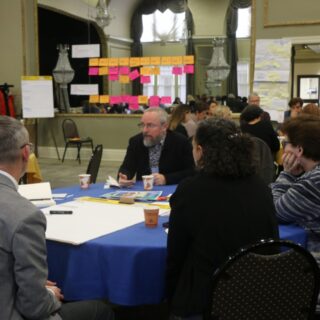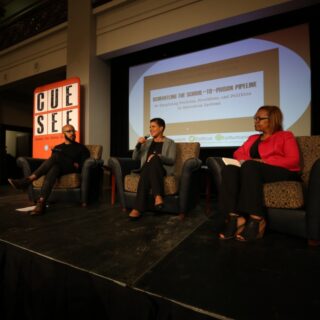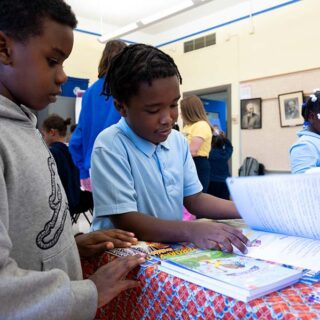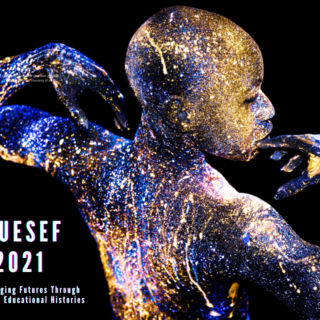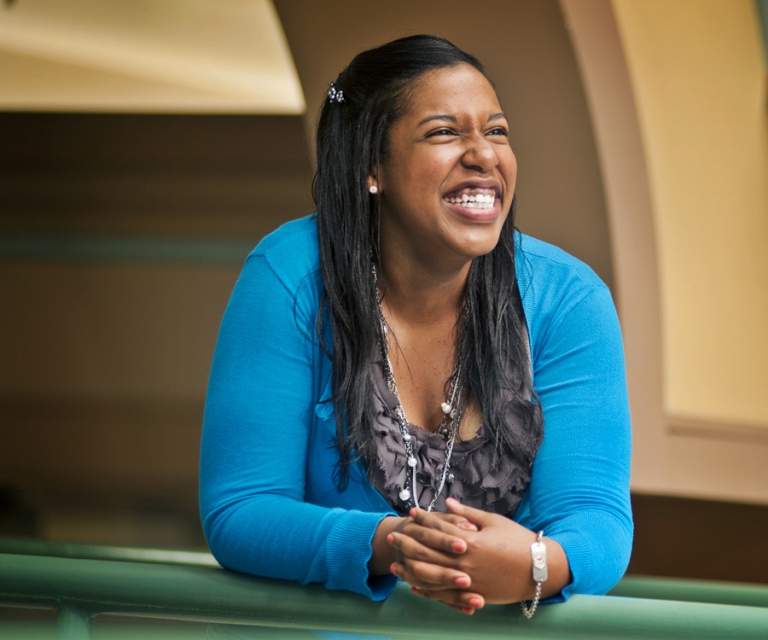
2022 Educational Leadership Series Will Explore Global Freedom Work
The University of Pittsburgh School of Education Department of Teaching, Learning, and Leading (TLL) will hold its second annual Educational Leadership Series from March to April 2022. This year’s theme, “Educational Leadership as Global Freedom Work,” asks participants to consider questions of educational leadership that cut across institutions, organizations, movements, nations, and communities.
“The series was inspired by questions about justice, freedom, and self-determination that people consistently bring to the table when discussing educational leadership,” says series organizer Sabina Vaught, professor and chair of TLL. “We wanted to think more broadly about what we mean by ‘educational leadership,’ and how that might encourage and support more radical thinking and work in schools, communities, and collectives organized around the exchange of knowledge.”
Co-sponsored by the school’s Center for Urban Education, the Practices of Freedom grant project, and the Doctor of Education (EdD) program, the series will feature four virtual presentations from scholars whose work is anchored in global Indigenous, Black, abolitionist, and feminist research.
All are welcome to attend these free virtual sessions. Each session will include a speaker talk followed by a Q&A.
Session topics include raciolinguistic examinations of policies affecting im/migrant students in Los Angeles; women’s collective leadership communities at a Head Start program in New York City; Black LGBTQ+ social and political activism in Brazil and the United States; and possibilities for re-imagined abolitionist and youth-centered schooling.
“These topics speak to people who are working across multiple educational domains,” says Vaught. “Practitioners in leadership positions in school districts who grapple with these questions; scholars who are wanting to think about leadership with this capacity and focus; and organizers, staff, and members in all institution and organization types who are engaging in and supporting leadership roles and educational initiatives.”
She continues: “The series was originally inspired by a Massachusetts high school building leadership team that sought radical engagement and learning for its leadership efforts. I hope participants are moved by the same inspiration that prompted this series—the sort of unrestrained desire to examine everything they are doing in order to do the humanizing work that called them to this field in the first place.”
Session Information and Registration:
“Surface Tension: State Counter-insurgencies in Im/migrant Schooling in Los Angeles”
Presented by Kyle Halle-Erby, PhD candidate, University of California Los Angeles
Will be introduced by Dr. Loretta Fernandez
March 3, 2:30 – 3:45 p.m.
Kyle Halle-Erby is conducting an ethnographic study of the official and practiced policy governing students’ home languages in new high schools that exclusively serve recently arrived immigrant young people in Los Angeles. His research engages the Black Radical Tradition, critical Indigenous research, and raciolinguistics to qualitatively study the relationships among racialization, Indigeneity, and immigration in educational language policy. Before graduate school, Kyle was a high school humanities teacher and school leader in San Francisco.
“Partitioned Publics and Counter-topographies of Care: Collective Leadership Communities Among Mothers at a Head Start Center”
Presented by Ujju Aggarwal, PhD, Assistant Professor of Anthropology and Experiential Learning, Coordinator of the Self-Directed Learning Program, The New School for Social Research
Will be introduced by Dr. Lisa Ortiz
March 17, 2:30 – 3:45 p.m.
Ujju Aggarwal’s research examines questions related to public infrastructures, urban space, racial capitalism, rights, gender, and the state. She is currently completing her first book, The Color of Choice: Raced Rights, the Structure of Citizenship, and Inequality in Education, a historically informed ethnography of choice as it emerged in the post-Civil Rights period in the United States. Her work has appeared in popular outlets, scholarly journals, and edited volumes including Transforming Anthropology; Scholar & Feminist Online; Educational Policy, and Feminists Rethink the Neoliberal State: Inequality, Exclusion, and Change (edited by Leela Fernandes).
“Manifesting Black Queer Freedom: The Radical Imaginary of Black LGBTQ+ Activists in Brazil and the United States”
Watufani Poe, PhD, Fellow at the Center for Humanistic Inquiry and Visiting Lecturer in the Department of Black Studies and the Latinx and Latin American Studies Program, Amherst College
Will be introduced by Dr. Tom Ralston
April 7, 2:30 – 3:45 p.m.
Watufani Poe is a scholar of race, gender, and sexuality in Brazil and the United States. His dissertation, titled “Resisting Fragmentation: The Radical Possibilities of Black LGBTQ+ Activism in Brazil and the United States,” is an ethnohistoric analysis of Black LGBTQ+ social and political activism in both countries and outlines the ways Black LGBTQ people push for freedom across various social and political movement spaces. His research has been funded by the Social Sciences Research Council, the Mellon Foundation, The U.S. Fulbright Program, The Tinker Foundation, and the Brown University Brazil Initiative. He will join the faculty of the Pitt School of Education in the Department of Teaching, Learning, and Leading in fall 2022.
“Abolitionist Education in the Carceral State: Transformation, Repair and Reclaiming Space in Los Angeles”
Margaret Goldman, PhD candidate, University of California Irvine
Will be introduced by Dr. George Barganier
April 21, 2:30 – 3:45 p.m.
Margaret Goldman is a National Science Foundation Graduate Research Fellow. Her research explores abolitionist responses to the nexus between schooling and systems of confinement, focusing on the strategies of alternative education developed by system-impacted youth and their communities. She currently teaches English at a continuation high school, where she also researches with students and teachers to explore the possibilities for radically re-imagined liberatory, abolitionist, and youth-centered educational spaces.
Learn More:
For questions about the Educational Leadership Series, please contact Sabina Vaught at svaught@pitt.edu.

